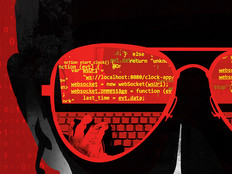Foodborne Chicago Is Harvesting Twitter Data for Public Health
Twitter is a lot of things. It’s a publicly traded company, a communication tool and a microblogging tool. And now, it also provides a way to harvest data on foodborne illnesses.
Data harvesting isn’t new for local governments, but it’s early enough in the development phase to warrant a thorough explanation. StateTech previously reported on Washington, D.C.’s, efforts to harvest data from tweets in order to grade its agencies’ customer service performance. As Matt Desjardins, communications officer for the government of the District of Columbia, told us, “Twitter feeds in the past were about putting out information, not collecting it. That's completely changing.”
On Harvard’s Data-Smart City Solutions — a StateTech Must-Read IT blog — master’s degree candidate Nick Carney is keeping a close eye on Twitter’s presence in the public sector. Here is an excerpt from his recent post Twitter May One Day Save Your Life:
One strategy in this war against food poisoning involves employing social media to encourage residents to participate in the existing, formalized food poisoning tracking system. The City of Chicago, for instance, has taken to Twitter to directly contact those residents who complain of foodborne illness. The scheme, named Foodborne Chicago, uses a program designed to detect language that suggests an individual is suffering from food poisoning. After identifying local Twitter users who allege that Windy City restaurants caused a bout of food poisoning, the City uses volunteers to contact the afflicted resident and suggest that he or she file a complaint with the Department of Public Health. Created by the Smart Chicago Collaborative, a quasi-public civic organization, as of August 2013 the program had inspired 33 restaurant inspections as a result of having contacted 150 Chicagoan Tweeters.
Although this data is clearly useful for public health officials, how comfortable are citizens with having their tweets carefully monitored by the government? In light of the NSA revelations, initiatives like Foodborne Chicago are sure to spark controversy, regardless of how successful they might be. This project is a form of crowdsourcing, minus the submissions. Think Google’s Flu Trends, but targeted at individual users. It’s a classic technology catch-22: Governments and citizens will have to evaluate the benefits of the new — and potentially invasive — technology against the costs to individual privacy.
According to the official Foodborne Chicago site, a “human classifier” has reached out to 258 people who have complained about food poisoning on Twitter. As a result, an impressive 180 people have submitted reports. According to the Chicago Tribune, one person who was contacted after tweeting about his illness had this to say about the experience: “I actually filled [out the report] and thought it was awesome.”








